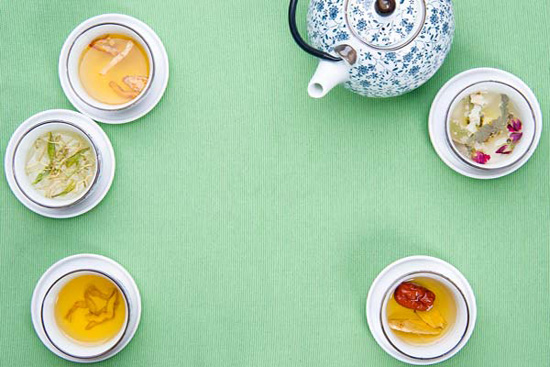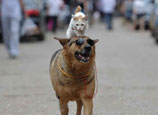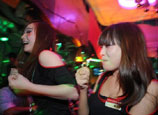
 |
| Herbal tea, made of ingredients with cooling properties, is a popular summer drink to diffuse internal heat. (China Daily) |
While the rest of the world swelters as the mercury shoots up, China keeps cool with the help of ancient practices that have been passed down for countless generations. Liu Zhihua tells you what they are.
It is summer, but a rare heat wave recently had the weather bureau send out high temperature alerts to almost a third of all China's provinces.
Such weather can cause, at best, sunburn and, at worst, heatstroke, with a spectrum of symptoms in between, such as headaches, bubbling colds, mouth ulcers, indigestion and low spirits.
When heat waves linger across China, people resort to time-tested ways to keep cool and healthy, many of which are based on the principles of traditional Chinese medicine, which has kept the Chinese in good health for thousands of years.
Mostly, the main belief is food is medicine, and you have to keep healthy in summer by knowing what to eat and drink, rather than simply getting out of the heat and keeping cool.
"Traditional Chinese medicine emphasizes keeping harmony with nature and the environment, and living healthily in accord with seasonal changes," says Xia Zhongyuan, a TCM practitioner with China-Japan Friendship Hospital in Beijing.
"It is not just about treating illness but is more about a lifestyle that maintains body, mind and spirit."
Beijing resident Xu Dali remembers experiencing the magic of TCM when he was a young boy.
The 30-year-old used to spend his summer holiday in Shaoguan city, Guangdong province, where his aunt lives. It was a lot of fun, but the heat caused him to suffer nosebleeds. This is a typical symptom of too much internal heat, or shanghuo, he was told.
His aunt made him a cooling herbal tea, or liangcha. Xu was made to drink a bowl of this slightly bitter medicinal tea every day to stop the nosebleeds.
"It was like magic. My nose would stop bleeding if I had the tea faithfully every day, but if I did not drink it, my nose started bleeding the next morning," Xu remembers.

















 Surviving climber safe at home
Surviving climber safe at home


![]()
